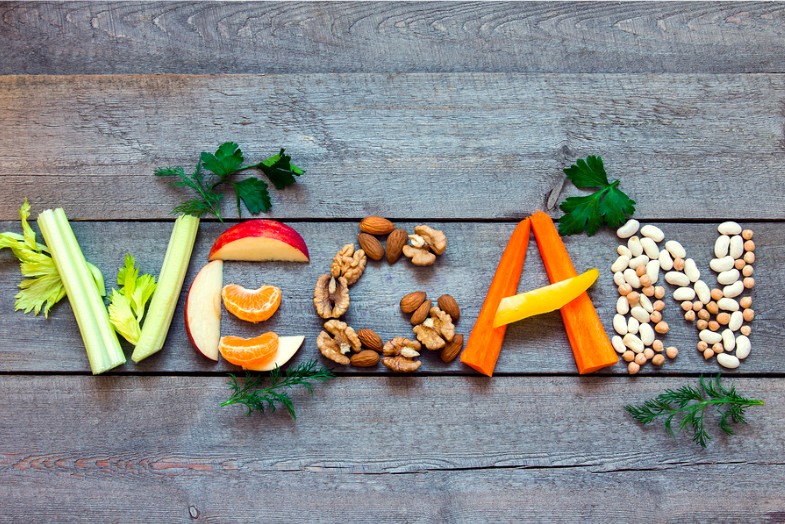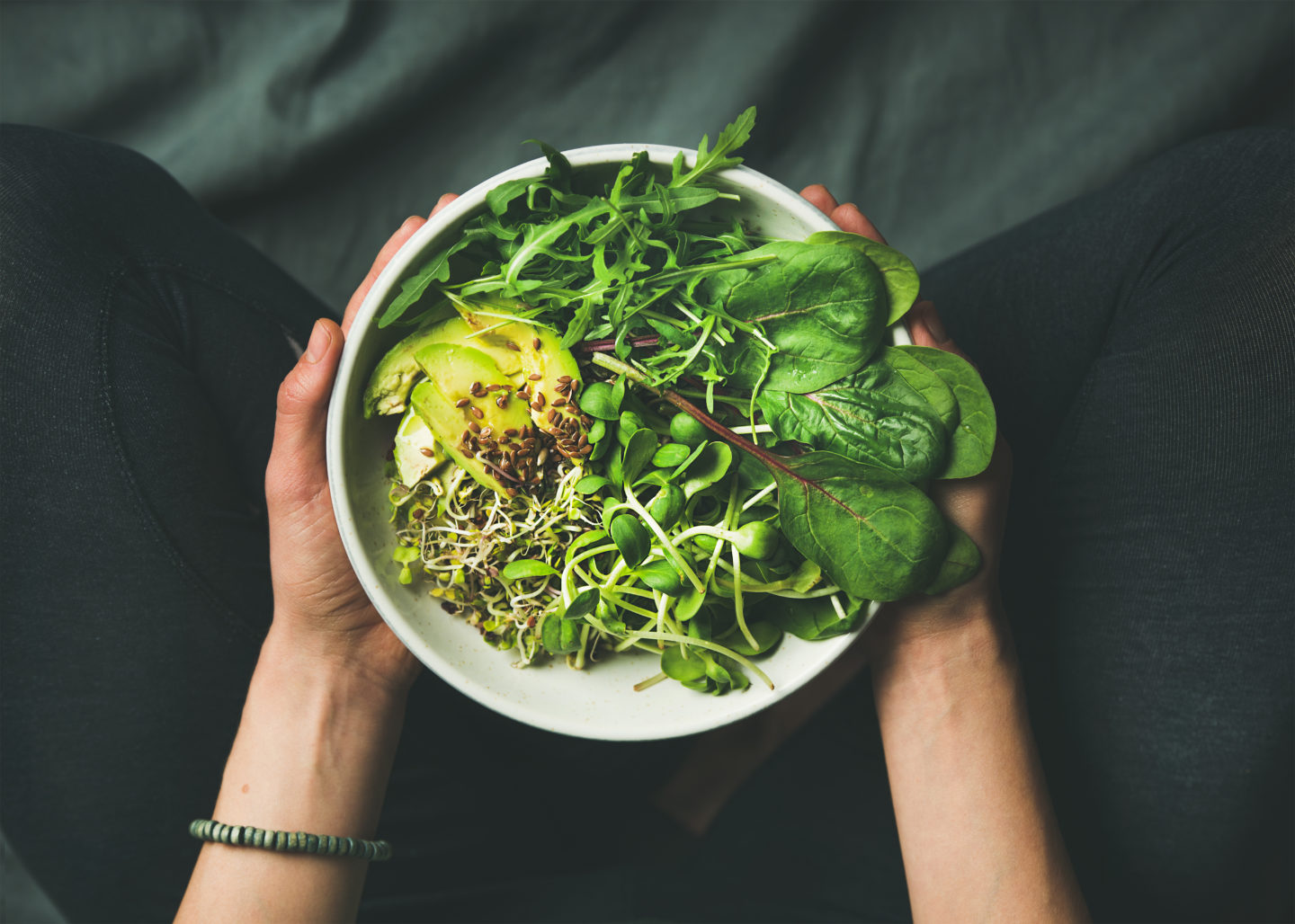A vegan diet is associated with a variety of health benefits, including improved weight management and protection against certain chronic diseases. However, finding balanced, healthy meals on a vegan diet can often be difficult and overwhelming. If planned improperly, a vegan diet can cause nutritional deficiencies and health problems. This text offers you information that can help you get started.
What is a vegan diet?
A vegan diet is a diet plan that eliminates all animal products, including meat, fish, eggs, dairy products and honey. People choose to accept veganism for a variety of reasons, such as ethical or religious principles. Others may choose to become vegan to reduce their ecological footprint, as a plant-based diet is thought to create less greenhouse gas emissions and use fewer natural resources. However, the impact of any diet on the environment depends on several factors, including the way food is produced, packaged and transported. Some people also opt for a vegan diet for health reasons, because veganism is associated with many benefits and can even help prevent certain chronic diseases. In particular, a vegan diet has been shown to improve heart health, increase weight loss and support blood sugar control.

Health benefits of veganism
Research shows that a well-planned vegan diet can improve several aspects of your health. According to one study, vegans have a 75% lower risk of developing high blood pressure than those who do not care what they take into their body, or those who eat both meat and herbs. They also tend to have a lower body mass index (BMI) and lower levels of total and LDL (bad) cholesterol. High levels of these markers are risk factors for heart disease A vegan diet can also help with weight management. One study in 18 women found that after a vegan diet for 6 months, calorie and fat intake was reduced, as well as faster short-term weight loss, compared to a low-calorie diet. Some research also suggests that veganism may be helpful in controlling blood sugar and may help reduce the risk of diabetes. A test of 61,000 people found that vegans were 2.6 times less likely to develop type 2 diabetes than omnivores. A vegan diet can also reduce the symptoms of osteoarthritis – including joint pain and swelling – and the risk of certain cancers, such as breast and prostate
Vegan shopping list
A healthy vegan diet should include plenty of whole grains, protein, healthy fats and fruits and vegetables. Foods such as nuts, seeds, legumes, soy products and nutritious yeast can help you increase your protein intake throughout the day. Meanwhile, avocado oil, coconut oil and olive oil are nutritious, vegan suitable for healthy fats.
– Here is an example of a vegan shopping list to help you get started.
– Fresh products
- Vegetables: asparagus, peppers, broccoli, cabbage, carrots, cauliflower, garlic, kale, onions, potatoes, spinach, tomatoes, zucchini, etc.
- Fruits: apples, bananas, blueberries, grapes, grapefruit, lemon, lime, kiwi, oranges, peaches, pears, pomegranates, strawberries, etc.
– Frozen products
- Vegetables: broccoli, carrots, cauliflower, corn, peas,
- Fruits: blackberries, blueberries, cherries, mangoes, pineapples, raspberries, strawberries, etc.
– Whole grains
- barley, Integral rice, buckwheat, bulgur, Oat, Quinoa, Chinese sugar cane
– Bread and pasta
- brown rice paste, Whole Wheat Pasta
– Protein sources
- Walnuts: almonds, Brazil nuts, cashews, hazelnuts, walnuts, peanuts, pecans, pistachios, etc.
- Seeds: chia seeds, flax seeds, hemp seeds, pumpkin seeds, sesame seeds, sunflower seeds, etc.
- Legumes: black beans, chickpeas, beans, etc.
- Soy products: tempeh, tofu, etc.
– Protein powder:
- Pea protein powder, Brown Rice protein, Hemp Protein, etc.
– Dairy alternatives
- Milk substitutes: almond, cashew, coconut, flax, oats, rice and soy milk, etc.
- Yogurt substitutes: almond, cashew, coconut, flax and soy yogurts, etc.
- Vegan cheese: vegan parmesan,
– Egg alternatives
- Aquafaba
- Powder with carrot
- Chia seeds
- Corn starch
- Flax meal
- Silk tofu
– Healthy fats
- Avocado
- Avocado oil
- Coconut oil
- Linseed oil
- Olive oil
- Unsweetened coconut
- Tahini
– Snack food
- Edamame
- Dark chocolate
- Dried fruits
- Hummus
- Walnut butter
- Popcorn
- Roasted chickpeas
– Sugar
- Coconut sugar
- Dates
- Maple syrup
- Stevia
– Spices and condiments
- Cayenne pepper
- Chili powder
- Cinnamon
- Cumin
- Garlic powder
- Ground ginger
- Nutritious yeast
- Paprika
- Pepper
- Rosemary
- Thyme
- Turmeric
Keep in mind that many processed vegan products in the store – such as vegan meat substitutes – are often filled with sodium, fillers, additives and other ingredients that can harm your health. Try to stick to mostly whole, unprocessed foods – Nutritional Deficiencies A vegan diet may be associated with an increased risk of several nutritional deficiencies. This is because meat, fish and poultry are rich in several important nutrients that are mostly lacking in plant foods, including protein, iron, zinc, vitamin B12, phosphorus and omega-3 fatty acids. Animal products such as eggs and dairy products are also high in protein and micronutrients such as calcium, potassium, phosphorus, iodine, iron and magnesium.

Completely eliminating these foods from your diet can increase your risk of nutrient deficiencies. In particular, vegans may be at greater risk of vitamin B12, vitamin D, calcium, iodine, iron and protein deficiencies. This can lead to an increased risk of problems such as anemia, weakened bones and weakened immunity. Low levels of vitamin B12 can be especially worrying during pregnancy, as a deficiency can potentially increase the risk of damage to your baby’s brain and nervous system. Incorporating a variety of nutrient-rich ingredients and fortified foods into your diet is essential to ensure that you meet your nutritional needs. Vitamin B12 and vitamin D can be found in fortified foods, such as plant-based milk, cereals and nutritional yeast. Meanwhile, protein, zinc and iron are found in legumes, soy products, nuts and seeds. Including a moderate amount of iodized salt in your diet can also help you meet your iodine needs.
Supplements
Satisfying your nutritional needs can be challenging while following a vegan diet. Certain nutrients such as vitamin B12, vitamin D and iodine are found primarily in animal products and certain fortified foods. In addition, while iron appears in a variety of plant foods, it may not be absorbed as well as iron seeds found in animal products. Taking a multivitamin or other supplement can help make up for any nutritional deficiencies and provide key micronutrients that you may be missing. For best results, look for a multivitamin that contains vitamin B12, zinc, iron, vitamin D and calcium. Keep in mind that it is usually recommended to add larger amounts of vitamin B12 than the recommended dietary approval (RDA), because your body can only absorb a small amount at a time. Try to target 2,000-2,500 mcg of vitamin B12 per week. This can be divided into several smaller dose and may require a special supplement with the addition of a multivitamin. You could also consider taking algae oil, a plant form of omega-3 fatty acids. Your body needs these types of fats for optimal heart health, brain function and disease prevention.

When not properly planned, a vegan diet can increase the risk of several nutritional deficiencies. Following a balanced diet and taking certain supplements can help you get the nutrients your body needs. A well-organized vegan diet is healthy, nutritious, and associated with a number of health benefits, including improving heart health, blood sugar, and body weight. The following vegan meal plan can help you include a lot of nutrients in your diet to provide your body with the necessary nutrients. Keep in mind that supplements and proper planning are key to avoiding deficiencies in several critical nutrients.
